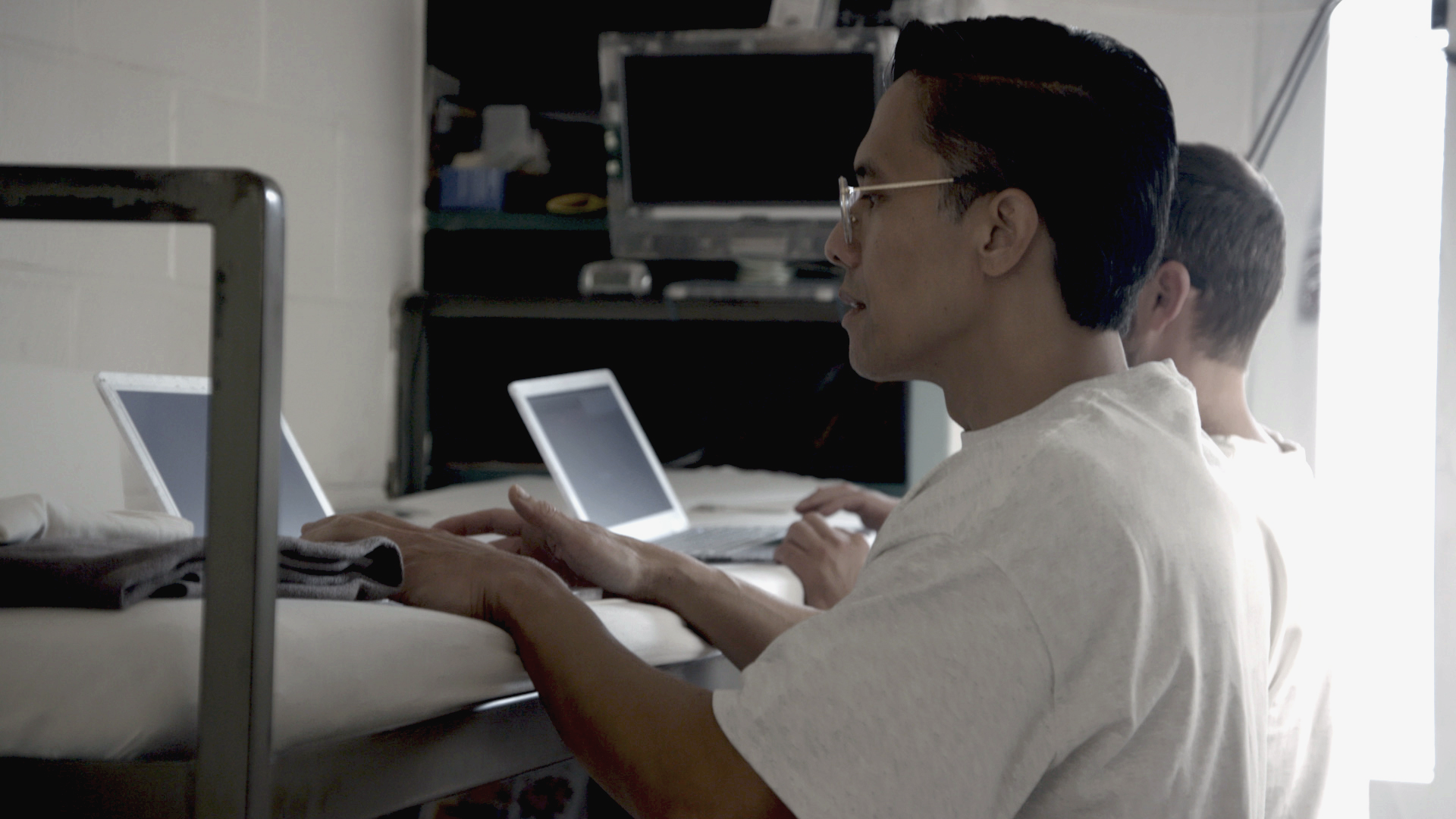She Was Sentenced to Life Without Parole. Teaching STEM Gave Her Purpose
Jessica Hicklin is using edtech to help make in-prison education more accessible. It’s a mission inspired by her time incarcerated.

Tools and ideas to transform education. Sign up below.
You are now subscribed
Your newsletter sign-up was successful
At only 16-years-old, Jessica Hicklin was sentenced to life in prison without the chance of parole after murdering a friend during a drug deal gone wrong. At the time, Hicklin was addicted to methamphetamine.
“My introduction to prison was, 'You have a lot of time, you're going to die here, and you need to figure out what to do with your life,'” says Hicklin. “I was faced with the reality that I would spend the rest of my life in one square mile in Missouri’s death-row prison.”
For more than five years, Hicklin, who was put in a male prison and transitioned while incarcerated, struggled to find motivation to get out of bed. “Then I decided that if I would never go home, the next best thing I could do is help other people go home and stay home,” she says.
Teaching proved one of the best ways of doing that. Research shows those who are educated in prison have much lower rates of recidivism. Before going to prison, Hicklin had been a gifted STEM student. “I was one of those silly people that thought I'd be an actuary when I grew up,” she says. “STEM is how we understand our world, or how we come to understand it more deeply.”
She drew on that love of STEM, first as a volunteer math instructor who would help fellow prisoners prepare for the GED test, and then later by teaching herself and others to code without access to the internet. Hicklin was inspired by the early content created by Khan Academy in the mid-2000s and created video learning opportunities for in-prison education. Ultimately, these various efforts culminated with Hicklin co-founding Unlocked Labs, an edtech nonprofit with a mission of making education in prison more accessible that was a recent winner of the Milken–Penn GSE Education Business Plan Competition, awarded at the EdTech Week conference.
Due to a pair of Supreme Court decisions that together banned mandatory life sentences without the possibility of parole for those under 18, and then made this ban retroactive, Hicklin had the opportunity to be released on parole in 2022, after spending 26 years in prison. Now she is devoting herself to helping those still in prison gain access to education.
What is Unlocked Labs?

“The overarching mission of Unlocked Labs is to empower justice-involved technologists to leverage lived experience to build a better justice system,” Hicklin says. “What that looks like in practice is that we teach people while they're incarcerated how to become technologists or software engineers.”
Tools and ideas to transform education. Sign up below.
When the incarcerated are released, Unlocked Labs can help them enter the workforce, and even hires many of them to continue the mission. “Seventy percent of my team is formerly incarcerated,” Hicklin says.
Unlocked Labs also works to develop open-source edtech that facilitates in-prison access to higher education classes and vocational training. “We’re focused on open-source education technology because not everybody is going to be interested in programming,” she says. “So we're interested in how do we enable higher education in prison to be hybrid and things like that.”
One example of this type of work is better data-tracking tools that can help stakeholders offering in-prison education meet the reporting requirements of Pell Grants for incarcerated individuals. Another example is providing content for existing programs, for instance, working with the nonprofit Ithaka S+R to provide an offline version of JSTOR.
“We're not content creators. The idea is to simply build that infrastructure,” Hicklin says.
Data-Driven Efforts
One of the stats that inspires Hicklin to do that work she does is that 83% of those who are released from prison will be rearrested within 10 years. Education can help decrease recidivism.
Even though there are many existing prison education efforts, Hicklin would like to see more coordination between those and increased sharing of best practices. “Because the data isn't collected and aggregated in one place, we can't analyze what's working – what keeps the 17% home, what keeps them succeeding?” Hicklin says.
The hope is that Unlocked Labs’ open-source software will help answer those questions. “The idea is to build that public open-source education infrastructure for prisons so that we can all collectively start analyzing what's happening and what's working, and connect it to outcomes and data-driven, evidence-based corrections,” she says.
How Can Educators Get Involved?
Opportunities abound for educators looking to help teach the prison population.
“Almost every department of corrections has a director of education -- approach them, tell them you're interested,” Hicklin says.
She also encourages educators interested in this area of education to reach out to her directly if they’ve been unable to get the conversation going with their local corrections officials. “We have interfaced with 26 states at this point, to gauge interest. And we have yet to run into a state that we've talked to that said, ‘Nope, no interest,’" she says. "So try and start the conversation on your own. If you can't, let's see if we can join it.”
Ultimately, the issue of prison recidivism impacts everyone, Hicklin says.
“Ninety-five percent of the people who are incarcerated are going live next door to you and me one day,” she says. “We have an obligation to help those people live there safely.”
Wanting to help those released from prison also has less altruistic reasons, Hicklin says, as doing so can reduce crime and the tax dollars that go to keeping those incarcerated.
“Whether you understand it's for them or not, it's for your family, it's for your neighbors, it's for everybody,” Hicklin says. “It's in all of our interests to make sure that when people come home, they can be successful.”
Erik Ofgang is a Tech & Learning contributor. A journalist, author and educator, his work has appeared in The New York Times, the Washington Post, the Smithsonian, The Atlantic, and Associated Press. He currently teaches at Western Connecticut State University’s MFA program. While a staff writer at Connecticut Magazine he won a Society of Professional Journalism Award for his education reporting. He is interested in how humans learn and how technology can make that more effective.

